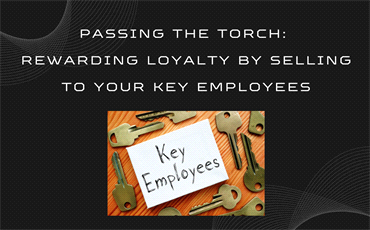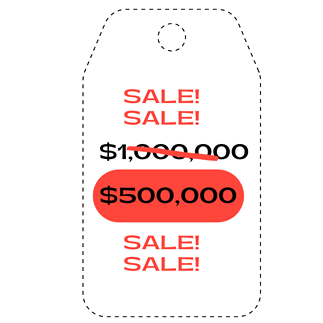Don't Scare Away Buyers: Keep Your P&L Business Only
When selling a business, it is crucial to provide potential buyers with an accurate profit and loss (P&L) statement that reflects the true financial performance.
When selling a business, one of the most important financial documents you will need to provide potential buyers is a profit and loss (P&L) statement. The P&L gives buyers a clear picture of the company's financial performance over time. It shows revenue, expenses, and net profit or loss for each period.
While compiling your P&L to share with potential buyers, it is crucial that you do not include any personal or discretionary expenses. Here are some key reasons why you should exclude personal expenses from a P&L statement for a business sale:
1. It provides an inaccurate financial picture. The goal of the P&L is to reflect the true financial performance of the business. If personal expenses like home insurance, rent, utilities, etc. are lumped in with legitimate business expenses, it distorts the accuracy of the operating expenses and net profit. This could cause buyers to draw incorrect conclusions about profit margins, costs, and earnings potential.
2. It complicates valuation. Experienced buyers and business brokers will recast the expenses on the P&L anyway to back out non-business expenses.
But you don't want to make them work too hard. Having personal and business expenses mixed together makes it much more difficult for buyers to separate what is relevant and value the business accurately.
3. It raises credibility concerns. Any sign that you, as the seller, are trying to manipulate or misrepresent the business's financials will set off alarm bells for buyers. Including personal costs intentionally makes it seem like you are trying to artificially inflate expenses to hide profits and reduce your tax burden. This could undermine your credibility.
4. It violates accounting standards. Keeping personal and business expenses completely separate is not just good practice; it is required by accounting rules like GAAP. Mixing the two together muddies the waters about what expenses are tied to business operations.
5. It complicates due diligence. During the buying process, the potential purchaser will conduct financial due diligence. Comingled personal and business expenses in your P&L will make it much harder for them to conduct an accurate review of the books and records. This could delay the sale timeline and ultimately kill the deal.
6. It can impact negotiations. If a buyer does notice inappropriate personal expenses lumped into the P&L, they may use this to negotiate a lower purchase price for the business. It could end up costing you big bucks in the end.
Keeping clean books and financial records is so important when selling a small business. The P&L statement provided to prospective buyers should contain only true business revenues and expenses that are essential to operations. Remove all discretionary (non-essential and personal) costs like:
- Personal vehicle costs
- Home mortgage payments
- Dining and Entertainment costs
- Personal travel
- Fitness or country club dues
Presenting a clear picture of profitability will go a long way toward building buyer confidence in your business. So be sure to scrub those P&Ls and keep your personal finances out of the business records. This will lead to a cleaner sale and help you get the maximum value for all your hard work in building your business over the years.
Contact Us
We will get back to you as soon as possible.
Please try again later.
Recent articles for you
Larry Goldstein of First Choice Business Brokers
License: NV RE S.0188852
Permit: Business Broker Permit BUSB.0007059
Navigation Links
Want to receive new business listing alerts by email?
The World's Authority in Business Sales
© 2023 Larry Goldstein of First Choice Business Brokers | Each office is independently owned and operated. Privacy Policy






